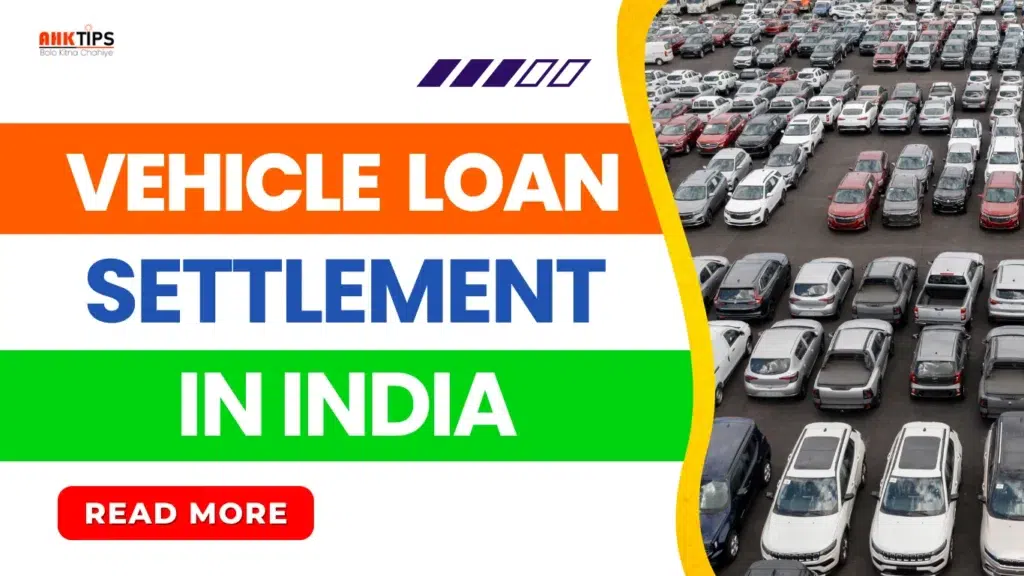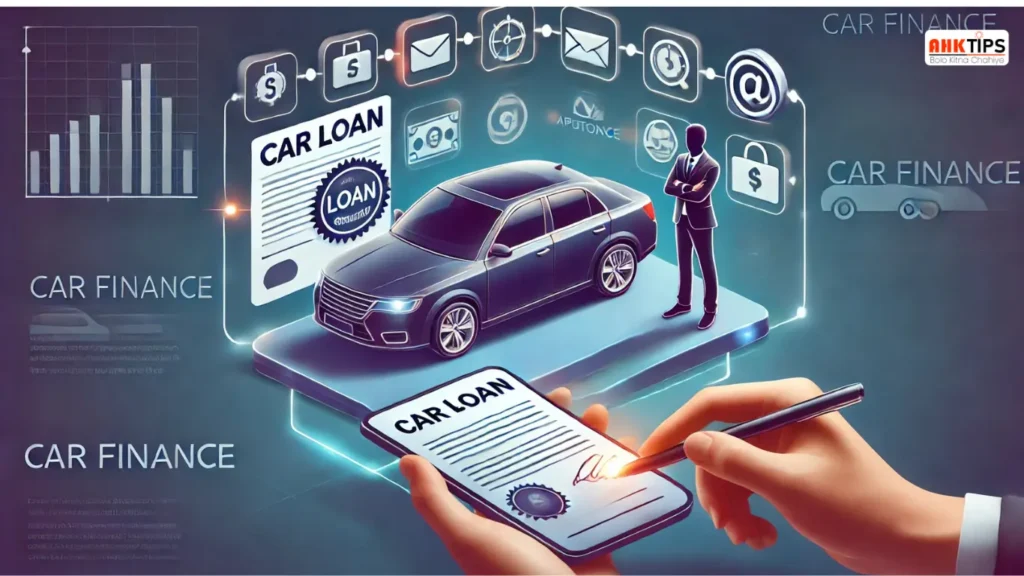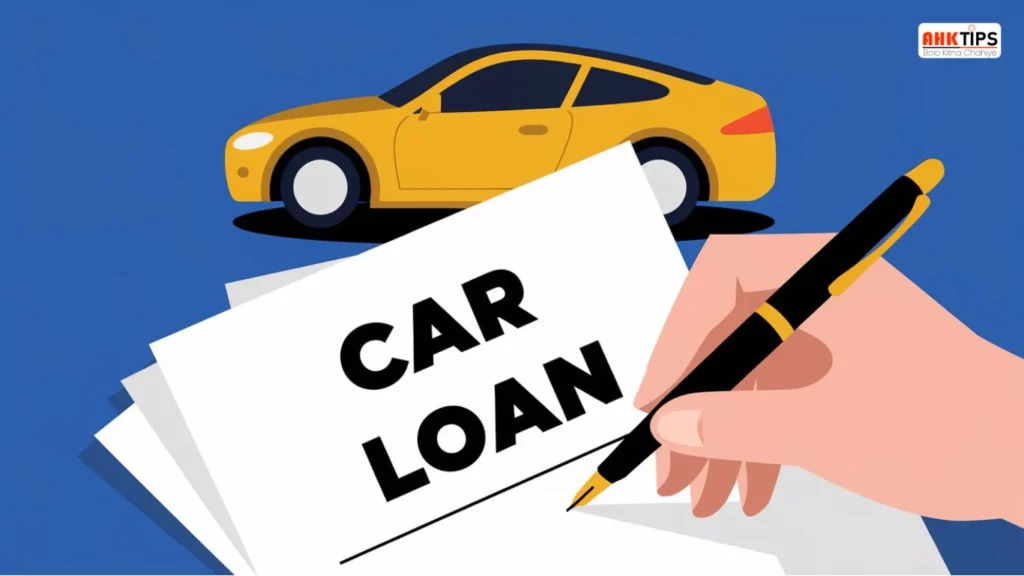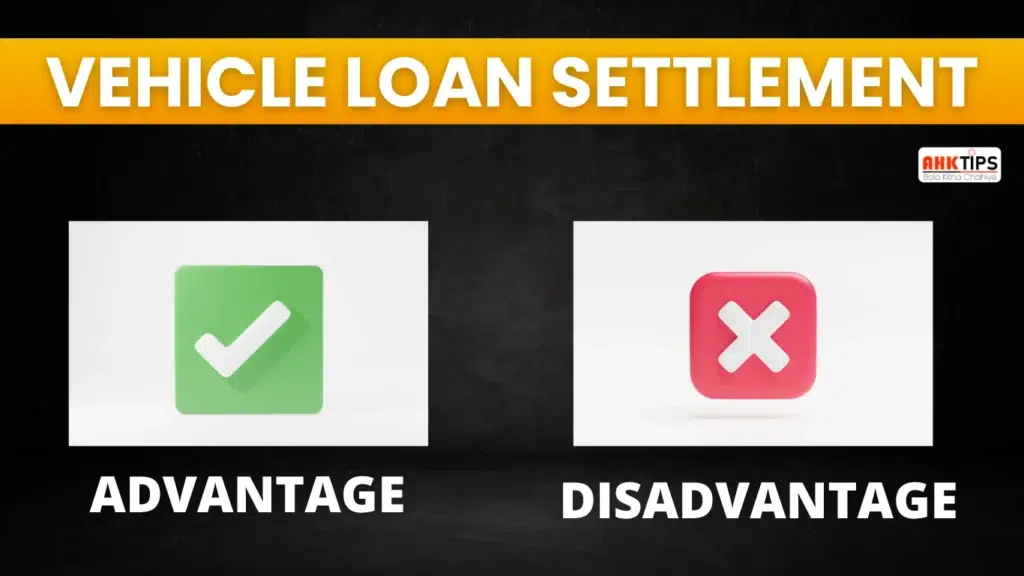Summary
In India, vehicle loan settlement helps borrowers who can’t repay their car loans. It offers an option if they face financial troubles. The borrower and lender agree on a smaller lump-sum payment. This payment will pay off the debt instead of the full loan balance. If the bank marks the account as “settled” instead of “closed,” the borrower’s credit score may fall. Settlements happen when payments are unpaid or a loan is a non-performing asset (NPA). It offers short-term relief and helps prevent legal problems. But it might affect your chances for future loans. Banks often settle due to delays in payments, poor recovery options, or high legal fees. Consider part-payments, EMI rescheduling, or refinancing first. This should be the last option. This operation depends on effective communication and complete documentation.
Introduction
A financial crisis, like job loss or a medical emergency, can make paying your car loan tough. If you have trouble paying your EMIs, you can ask for a vehicle loan settlement. This means the bank in India agrees to take a smaller, one-time payment instead of the full loan amount. This can lower your financial stress and stop more collections or legal actions. But it will hurt your credit score.
This page explains what auto loan settlement is, when you might need it, and how it works. It discusses the benefits and drawbacks of this option. You’ll also find details on how to apply and why banks might accept less than the full amount owed. This information is valuable for anyone facing serious financial issues.
What is Vehicle Loan Settlement in India?
Borrowers who cannot pay their auto loan in full can negotiate a settlement with the lender. This can help them find a solution to their financial struggles. If you’re thinking about this choice, it’s crucial to learn about vehicle loan settlement in India. It affects both your credit record and your finances.
Understanding Vehicle Loan Settlement
What Does Loan Settlement Mean?
In India, a car loan settlement is when the borrower and lender agree to close the loan account. The borrower pays less than the amount owed. This usually happens due to financial trouble. For example, it can be job loss, medical emergencies, or loss of income. These issues stop the borrower from repaying the loan.
In this case, the lender may agree to accept a one-time payment that is less than the total owed. They will mark the loan as “settled” instead of “closed.” This helps both sides avoid long legal recovery processes.
Difference Between Closure and Settlement
Loan closure is the complete loan amount repaid under the original terms. Settlement involves the lender accepting a compromise for a reduced amount. Closing helps your credit profile; settlement lowers your credit score.
How Vehicle Loan Settlement Works
Negotiation with the Lender
The borrower kicks off the settlement process by telling the bank or NBFC about their money troubles. If the lender becomes convinced, they could present a settlement figure. Someone should usually pay a large sum immediately to settle things.
This option is available only after several missed EMIs or if the loan is a non-performing asset (NPA). Usually, lenders object to settlement unless the account is very past due.
Documentation and Settlement Letter
After the parties agree on the settlement, the lender sends a letter. This letter confirms the amount and states that we will not pursue the balance further. Future reference will depend on this document.
After payment, the loan account says “settled” on the credit report. This means the borrower didn’t pay off the full debt.
Important Points to Consider
Impact on Credit Score
The impact of auto loan settlements in India on your credit score is one of the main negative aspects. A settled status stays on your credit report for years. It may reduce your chances of getting credit cards or loans later.
Settlement seems to lenders as evidence of credit risk. So, even if you fix the loan issue for now, it can hurt your long-term financial reputation.
Legal Possibility of Recovery
Some lenders might still claim the leftover debt after a settlement. This can happen, particularly when the agreements lack clear documentation. This is why one should get a suitable settlement letter and save a copy of the payment evidence.
Consider Settlement Only as a Last Resort
Use settlement only when all other repayment methods fail. Start by exploring these options: loan modification, EMI rescheduling, or personal loans.
Practical Insight into Vehicle Loan Settlement in India
Choosing an auto loan settlement in India may feel good now, but it has long-term effects. This is a financial decision that needs careful thought. You should take it only after exploring all other repayment options.
Reasons Banks Allow Vehicle Loan Settlement
If a borrower can’t keep up with their vehicle loan, banks might allow them to settle for less than what they owe. When borrowers learn why auto loan settlements take place, they can tell when and why lenders settle. A settlement isn’t ideal for anyone, but sometimes it makes sense.
What is a Vehicle Loan Settlement?
A car loan settlement is the agreement by the bank to accept a lump-sum payment less than the total owed. This usually happens after several missed payments. Lenders write off the debt as a non-performing asset when they are close to writing it off.
Lenders may choose to recover part of the debt through a negotiated settlement. This option is often better than going through long court cases or taking back vehicles. It lets both sides close the debt free from more trouble.
Key Reasons for Vehicle Loan Settlement
Financial Hardship Faced by the Borrower
A borrower’s major financial trouble is a key reason for auto loan settlements. Job loss, a pay cut, a major sickness, or a family emergency could all be the causes here. If the bank learns the borrower can’t repay the loan, it may suggest a settlement to recover part of the balance.
Before extending a settlement, banks review the borrower’s payment history. They also look at financial details and any communication. Real difficulties raise acceptance chances.
Long-Term Loan Delinquency
If a borrower misses several EMIs and the loan is overdue for a long time, banks may decide to settle. This choice saves them time and money on rehabilitation efforts. We call a loan that remains unpaid for months or years a non-performing asset.
Lenders may offer settlement options to wrap up old accounts. This can lower their non-performing asset ratio and help organise their records.
Low Recovery Value of Vehicle
If the market value of the financed vehicle drops a lot, the bank may not gain much from selling or taking it back. Under these circumstances, a settlement could be more valuable than the sale of the car.
Banks may agree to a partial recovery through a settlement. This often applies to older cars or vehicles in poor condition.
The Cost of Legal Action is Too High
If you take legal action to recover a vehicle loan, you’ll need to pay court and attorney fees. It can take months or even years to resolve. Banks want to settle if the anticipated recovery falls short of the legal expenses.
Banks often choose to collect what they can with urgency. They do this instead of going through the courts for full recovery.
Borrower Initiates a Lump Sum Offer
Sometimes, the borrower offers a one-time lump sum. This amount may be less than what is owed, but it still attracts the bank’s interest. If the borrower negotiates well and proves they can’t pay it all, lenders may agree to a faster debt recovery deal.
Banks Consider Risk and Recovery Factors
Internal risk analysis forms the foundation of every decision on loan settlement. Before making a settlement offer, banks check several things. They look at the borrower’s legal risks.
Understanding why auto loan settlements happen helps borrowers talk to banks better. This knowledge lets them negotiate realistically when facing financial issues.
How to Apply for Vehicle Loan Settlement in India
If you’re short on cash and can’t pay your car loan, think about debt settlement. Knowing how to apply for an auto loan settlement in India helps you pay off your debt without legal issues. A settlement may not be ideal, but it can end the account and prevent more collection efforts.
What is Vehicle Loan Settlement?
Settlement of a vehicle loan is the process wherein the lender agrees to accept a reduced sum than what is due. This is often given when the borrower faces financial issues and can’t pay each month. The bank marks the loan as “settled,” not “closed,” based on the borrower’s credit record.”
A settlement is usually a last resort. You should only use it when no other options are available.
When Can You Apply for Settlement?
Lenders often pay attention to the loan account when it’s long overdue. This usually follows many missed EMIs by the borrower. To apply for an auto loan settlement in India, you need to meet these requirements:
- You are facing genuine financial hardship.
- You cannot keep up with regular EMIs.
- The classification of your loan is non-performance.
- You want to pay the loan off with a lump sum.
Step-by-Step Guide to Apply for Vehicle Loan Settlement in India
Contact the Lender
First, you should get in touch with your bank or financial organization. For details about the settlement process, call customer service or visit the branch. Ask to meet with the loan recovery or settlement officer. Explain your financial situation in detail.
Submit a Written Application
Send a written demand for a settlement. Include an explanation of your financial state. This letter ought to comprise
- The number of your loan account
- Reason behind the request for settlement.
- Information on your present financial circumstances.
- One suggested payment you could make as a settlement.
If so, attach supporting records including bank statements, termination letters, or medical expenses.
Negotiate the Settlement Amount
The bank will offer a settlement once someone looks over your request. This amount is usually less than the total owed. It depends on your finances and repayment history. If necessary, you can work on this figure.
During the negotiations, be honest and reasonable. A reasonable lump-sum offer raises acceptance possibilities.
Receive the Settlement Letter
Following agreement on the amount, the lender will write a settlement letter. Carefully review it; save a signed copy for your records.
Make the Final Payment
Within the specified letter timeframe, pay the agreed upon settlement sum. Always get the payment receipt as evidence; use proper banking methods.
Check Your Credit Report
Your credit report will show “settled” for your loan account once you make the payment. This status can affect your future loan eligibility. It indicates that the full loan amount has not been paid.
Taking Action to Settle Your Loan Responsibly
To apply for an auto loan settlement in India, follow these steps:
- Use the right procedures.
- Communicate openly with your lender.
- Keep the necessary documents ready.
Settlement can ease financial struggles. But, think about how it will impact your credit over time.
Pros and Cons of Settling Your Vehicle Loan
If you struggle to pay your vehicle loan and can’t manage your monthly EMIs, loan settlement might seem like a good solution. One should know the whole picture before moving in this direction. Knowing the pros and cons of an auto loan settlement helps you decide wisely about your money.
What is a Vehicle Loan Settlement?
A vehicle loan settlement happens when a bank agrees to accept a lower amount than what you owe on your loan. This option is often offered to debtors who can’t keep up with payments due to financial trouble. Your credit record then shows the loan as “settled” instead of “closed”.
Settlement provides quick relief, but it can have long-term financial effects. Think carefully about these impacts.
Pros of Settling Your Vehicle Loan
Reduced Financial Burden
Reducing the overall amount owing is one of the main benefits of paying off your loan. If you can’t keep up with your EMIs, loan settlement allows you to close the account with one lower lump sum payment.
In tough times, like losing a job or facing health issues, this can be very helpful when monthly payments are too high.
Avoiding Legal Recovery or Repossession
If your loan account is very overdue, the lender may begin legal action or repossess your vehicle. Settlement provides a different road to fix the problem, free from legal conflict or vehicle seizure.
Quick Resolution
If you’re behind on several EMIs, loan settlement can help you pay off your debt faster. It provides a clear path forward free from bank’s ongoing collecting activities.
Cons of Settling Your Vehicle Loan
Impact on Credit Score
The effect on your credit score is a major downside of vehicle loan settlement. A loan listed as “settled” instead of “closed” shows that the whole debt was not paid back.
This status hurts your credit score and remains on your record for years. Future lenders may charge higher interest rates or hesitate to give you loans.
Loss of Vehicle Ownership Benefits
In some cases, the car is auctioned off before the payment is offered. Even after you pay the settlement, you can lose possession of the item. If you only pay some dues, you might not get full ownership documents.
Limited Access to Future Credit
A settled loan can restrict your future credit card, personal loan, or house loan access. Past settlements can signal credit risk to banks and NBFCs. So, your loan application might be denied or approved with unfavorable terms.
Weighing the Pros and Cons Carefully
Weigh the short-term benefits and long-term impacts before paying off your auto loan. Know how much you are saving right now compared to potential changes in your credit profile.
Knowing the benefits and drawbacks of vehicle loan settlements helps you make a choice. You can settle, or you can explore other options. Consider rescheduling your EMIs, refinancing, or asking friends or family for help.
Conclusion
Vehicle loan settlement in India can give you quick money relief if you can’t pay back what you owe. But it should be your last option. It prevents legal issues and stops someone from taking your car. But it can hurt your credit score for years. This can make it more difficult to get credit cards or fresh loans down the road. Consider other options first. Look into part-payments, EMI rescheduling, or refinancing. These can help if you’re thinking about paying off your auto loan. If you choose to settle, make sure to get a proper settlement letter. Also, keep proof of payment and check your credit report. Good communication and planning will make this process easier. They will also help you understand the long-term effects on your finances.
FAQ’s
When a borrower struggles to pay back a car loan in full, the bank may agree to a smaller one-time payment instead.
It does. Your credit report will show the account as “settled,” not “closed.” This can lower your credit score and affect future loan approvals.
If your loan turns into a non-performing asset (NPA) and you face money issues, apply after missing a few EMIs.
Try refinancing, EMI rescheduling, or part payment. If you have to settle, negotiate well. Get a reference letter and keep all documents.






